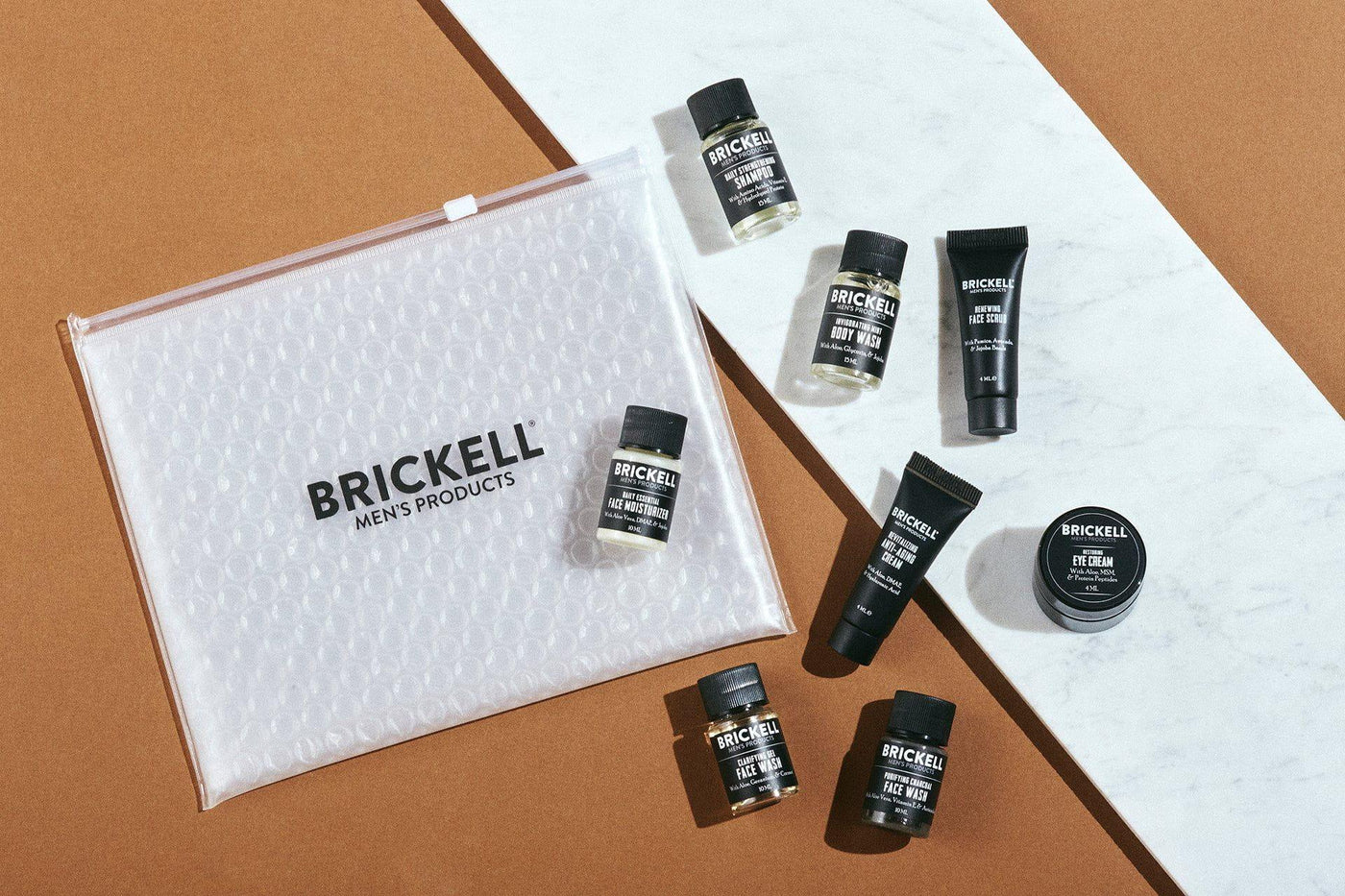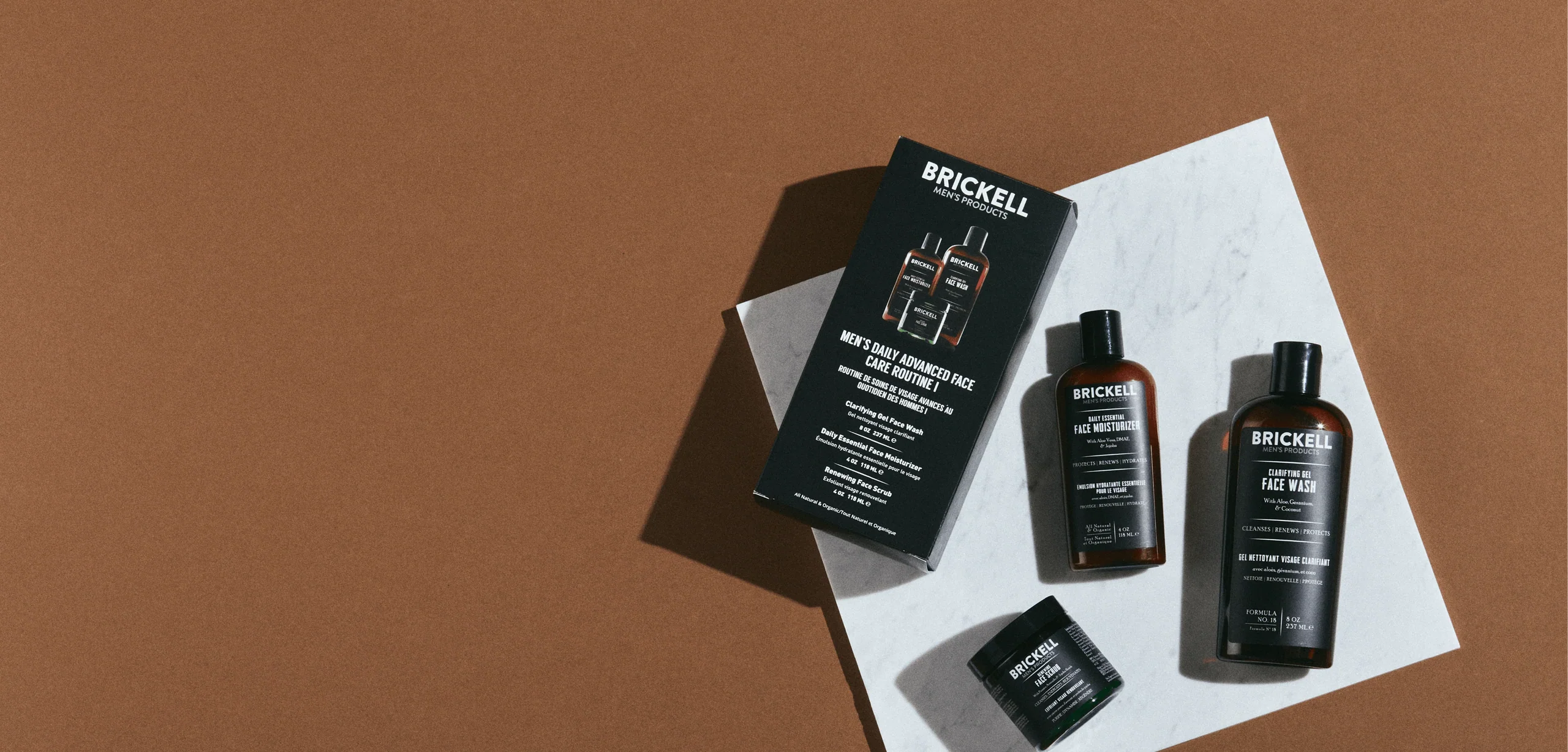The Grooming Manual
What Is Your Skin's Microbiome and Why Does It Matter?

You may already know how important your gut's microbiome is. Many experts have explained that it's the basis of health, since a healthy gut can fight off infections, communicate with the brain, and improve physical wellbeing.
Your skin’s microbiome works in a similar way. So a thriving skin microbiome is essential to good overall health - and looking your best.
Here's what you need to know and how to maintain your skin microbiome’s health.
The Basics of the Skin’s Microbiome
The skin’s microbiome is made up of millions of bacteria, fungi, and viruses that sit on the surface of the skin. It’s a huge community! In fact, there are about 1 billion microbes per square centimeter on the skin. The key to a healthy skin microbiome system lies in the diversity of this population.
When it’s flourishing, all this bacteria keeps your skin healthy, protects it against invaders, keeps it balanced, and keeps bad bacteria or fungal overgrowths in check. Your skin’s microbiome is known to:
- Fight infections
- Quell environmental damage
- Boost immunity
- Regulate the skin’s pH levels
- Keep skin plump and hydrated
- Prevent the overgrowth of bad bacteria that cause atopic dermatitis and psoriasis
But, just like your gut microbiome, keeping it healthy is a delicate balance - and there are lots of ways to go wrong.
How to Keep Your Skin’s Microbiome Healthy
Keeping your skin’s microbiome healthy requires prebiotics, probiotics, and postbiotics.
- Prebiotics: Ingredients that help the good bacteria grow (think soil, and the bacteria are the seeds)
- Probiotics: Microorganisms that make up this bacterial ecosystem. You can get this bacteria from human skin, the human gut, soil, or water.
- Postbiotics: Bacteria pieces or waste. These particles aren’t alive, but still contribute to the ecosystem.
Unfortunately, it's easy to throw this out of balance. Everyday activities and bad habits can compromise your skin’s microbiome, including:
- Ultra-hot baths or showers
- Heavily chlorinated or chemically treated water
- High sugar diet
- Harsh skincare ingredients and over-exfoliation
- Topical or internal antibiotics
Consequences of a Compromised Microbiome
If you mistreat your skin's microbiome over a long period of time, you’ll start to experience symptoms, such as:
- Trans-epidermal water loss
- Redness
- Sensitivity
- Dryness
- Rashes
- Eczema
- Psoriasis
- Dermatitis
- Folliculitis
- Acne
A Solution: Microbiome-Friendly Skincare
There are lots of ways to make your skincare microbiome friendly. The first tip is to avoid any alcohols, harsh surfactants, or stripping ingredients that hurt your existing microbiome population.
Beyond that, include microbiome-positive ingredients into your routine (and you may have some in there already. These include:
Prebiotics
- Natural sugars like beta-glucan or sugarcane help keep probiotics potent and working effectively.
- Oats also act as a powerful prebiotic, feeding the skin’s bacteria and encouraging a robust microbiome. (You'll find oatstraw in our Polishing Body Scrub)
- Natural oils like jojoba can serve as prebiotics, feeding the skin’s fat-loving bacteria. (Jojoba is an ingredient in many of our best selling products, including our customer favorite Daily Essential Face Moisturizer)
Probiotics
- Vitreoscilla filiformis is a waterborne bacteria known for improving severely dry skin.
- The Nitrosomonas eutropha strain uses your own sweat - and the ammonia therein - as a prebiotic, converting it into molecules that have antibacterial and anti-inflammatory properties for fewer breakouts and less irritation.
- Streptococcus thermophilus has been found to increase the skin’s own output of ceramides to counter moisture loss.
- Lactobacillus plantarum produces antibiotic-like molecules that can help with occasional breakouts.
- Bifidobacterium aids sensitive skin by increasing its resistance to physical and chemical aggressors.
- Lactobacillus casei can dial down inflammation and fend off infections.
- Tyndallized Lactobacillus acidophilus, when ingested, can prevent sun-induced wrinkles from forming by turning off the enzymes that chew up collagen.
Postbiotics
- Lysates, which are essentially bacteria parts, function as postbiotics. There are various different kinds of lysates that can serve slightly different functions (depending on how they’re prepared in the lab and what parts of the bacteria - like cell wall, cytoplasm, etc - they contain).
You Can Have Healthier Skin
Your skin’s microbiome is vital to your overall skin health - and there are easy ways to incorporate microbiome-friendly ingredients into your skincare routine.
But you don’t have to go all-out and start slathering on probiotics to make a positive difference. Just avoid the harsh ingredients known to do harm and make sure that you stick to a balanced, natural skincare routine each day. Your skin will take care of the rest.

